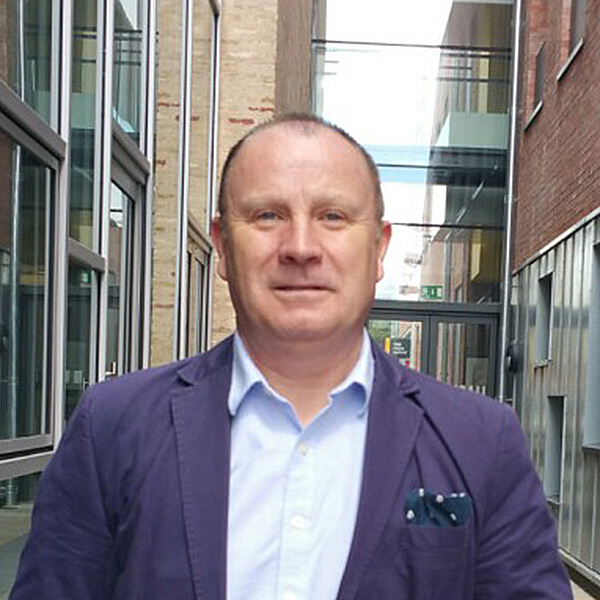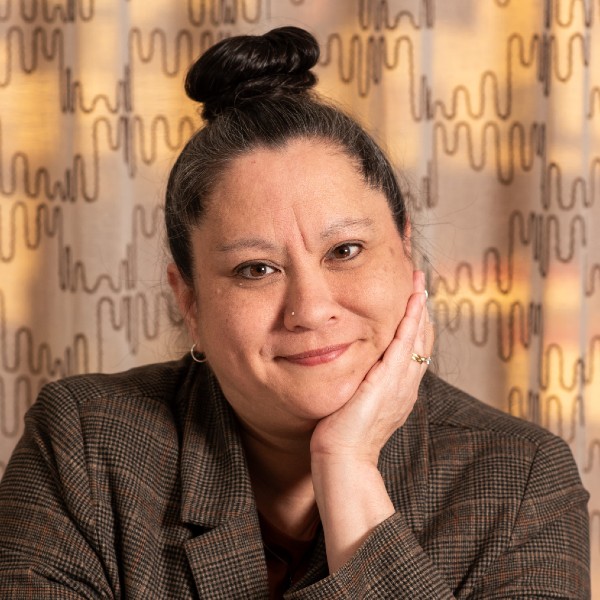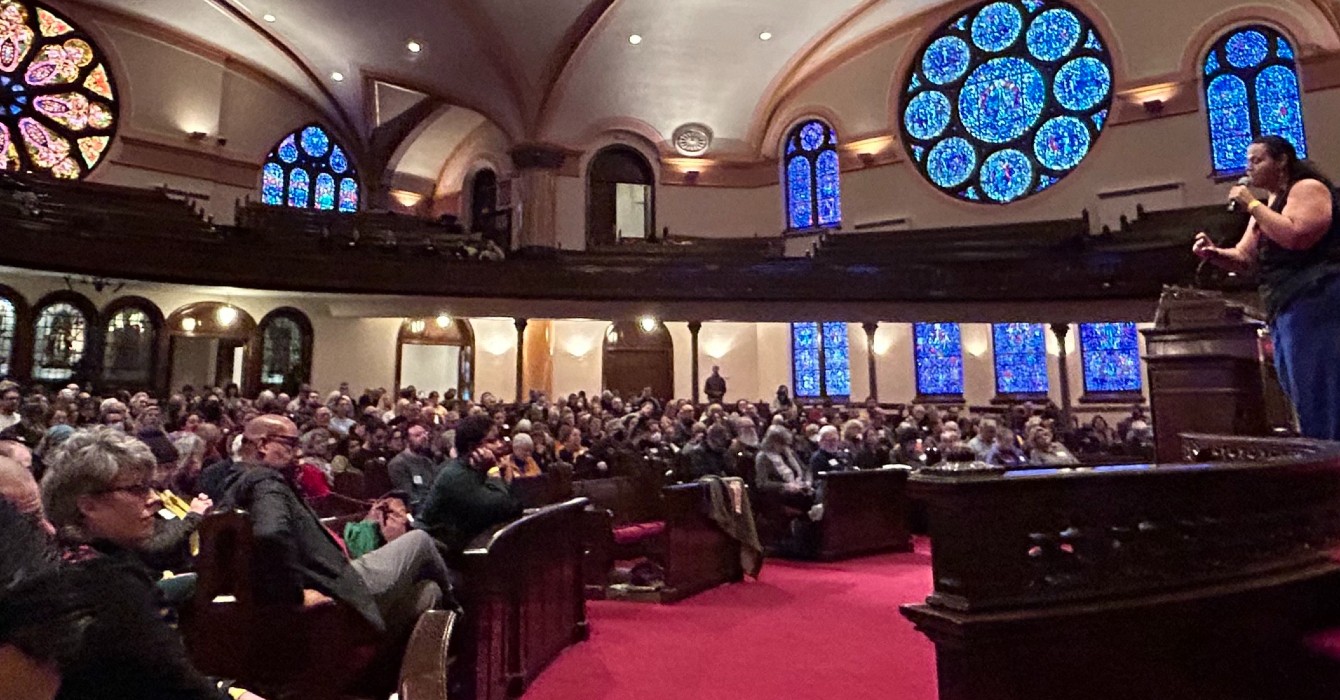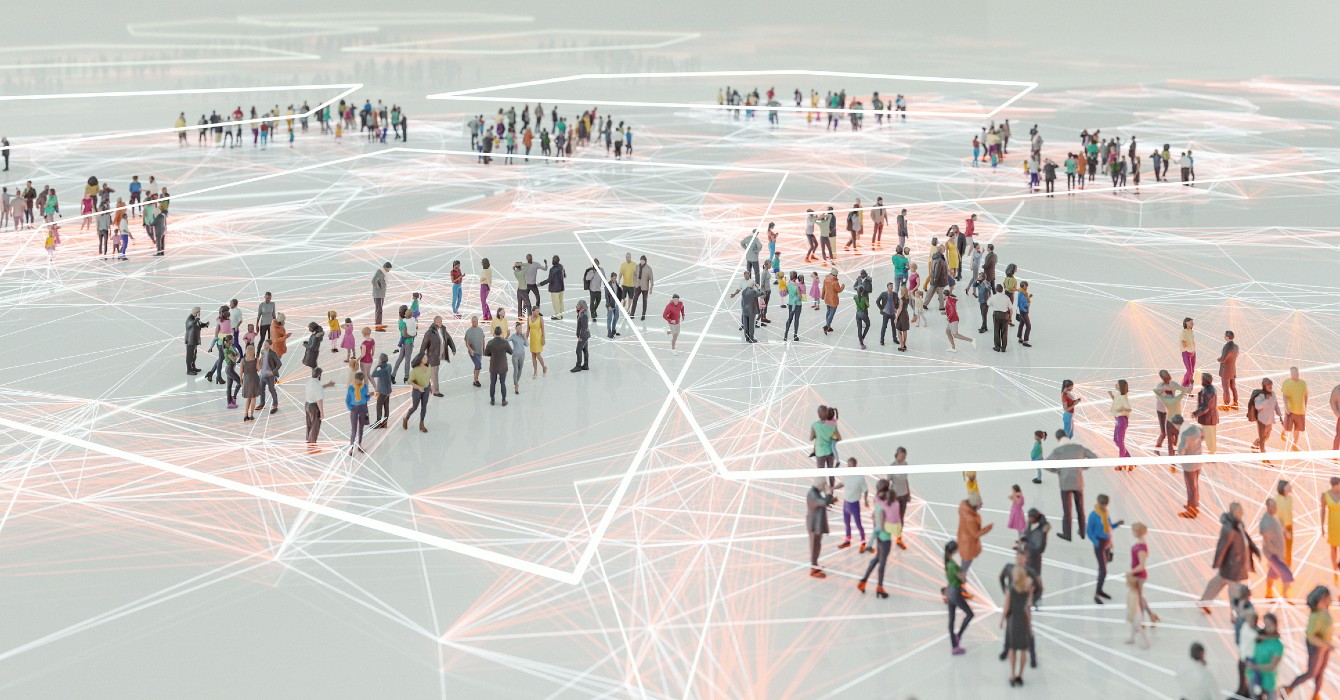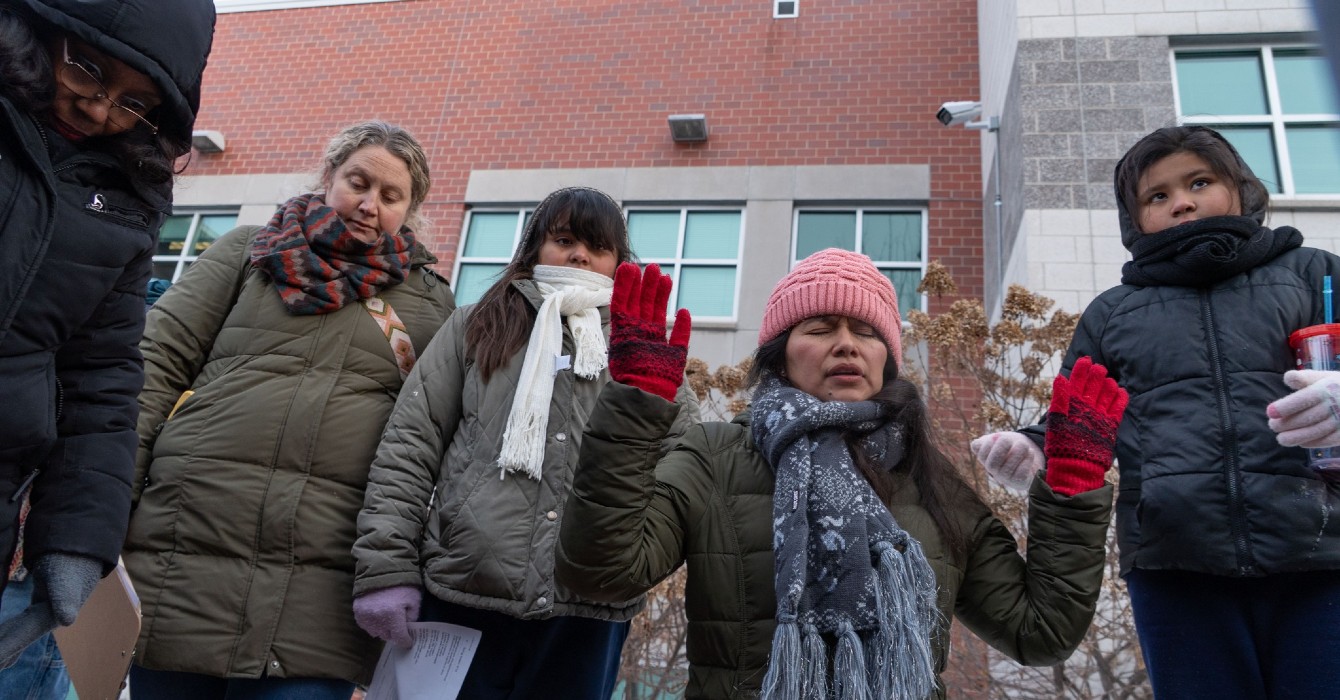I grew up in Belfast. I lived through a 30-year-long conflict that was influenced for centuries by toxic theology and politics. People on both sides learned how to verbally assassinate the other — and when conflict broke out, to literally assassinate the other.
When I was a boy in 1972, during one of the worst years of the conflict, we had a terrorist incident every 40 minutes. Sadly, a number of my boyhood friends chose political violence, in some cases motivated by extreme fundamentalist religious rhetoric.
As a person of faith growing up in this environment, I often wondered: What is the role of toxic religion in shaping spaces that are contested? And can theology play a role in healing?
I was ordained as a Methodist minister in 1987 and have spent decades at the sharp edge of the conflict. My organization, Rethinking Conflict, works in three main areas: the Irish peace process, the Israeli/Palestinian conflict, and within the U.S.
My life and ministry have been spent facilitating difficult and uncomfortable conversations. Some have been between people who did not want to be good neighbors — many of whom in fact wanted to kill their neighbors.
These conversations do not unfold with any specific, “magic” formula. Rather, I try to base them on the model of Jesus: listening, understanding, wrestling with every person’s life story. I encourage active listening, deep remembering, focusing on the other. I ask myself, “If I had been born in that other person’s world, what choices would I have made?”
And always at the back of my mind is this question: How did toxic politics and religion shape this person’s worldview?
From 1999 to 2015, I was involved in developing a $30 million project in the inner city of Belfast called Skainos — a post-conflict urban village that created spaces for people to hear each other and disagree well in those difficult days after the Good Friday Agreement.
In the years after the agreement, we used sacred space for dialogue as a way to bring about healing.
In the context of the Israeli/Palestinian conflict, I have hosted more than 1,000 key actors from the Middle East, many of them religious leaders. These influencers from the region have underlined the basic truth that while every conflict has its unique features and history, all are bound by common features.
At their core, all are defined by a breakdown in human relations that allows violence to emerge. Our work is to encourage former enemies to repair the broken places.
As sociologist John Brewer has suggested, a social peace process means “reconciliation between erstwhile protagonists … and replacement of brokenness by the development of tolerance and compromise.”
The sorts of actions involved in the social peace process, Brewer has noted, include “truth and reconciliation procedures, … policies that facilitate and encourage public tolerance and compromise, new forms of memory work, memorialisation and remembering, [and] public apologies.”
Numerous models have been developed for facilitating group encounter, including the coexistence model, which emphasizes interpersonal similarities, and the confrontational model, which emphasizes power relations between the conflictive sides.
In my work, I have tried to combine the coexistence and confrontational models and to use a narrative approach in which participants share their life stories and narratives of the conflict.
This quote by the journalist Bret Stephens sums up the purpose of such engagement:
“To disagree well you must first understand well. You have to read deeply, listen carefully, watch closely. You need to grant your adversary moral respect; give him the intellectual benefit of doubt; have sympathy for his motives and participate empathically with his line of reasoning. And you need to allow for the possibility that you might yet be persuaded of what he has to say.”
When I speak in the U.S., I am alarmed to find that difficult subjects many times are off-limits. Interestingly, they didn’t seem off-limits for Jesus! We can understand this better if we know more about the contested space in which Jesus’ ministry happened.
Jesus’ encounter with the Roman centurion, for example, took place during an occupation (Matthew 8:5-13). The jackboot of the most efficient military machine on planet Earth at that time was on the neck of the Jewish people. Jesus reached out and engaged with the so-called enemy. That story ends with the mind-blowing statement that Jesus has not seen so great a faith in all of Israel.
People often ask me, “What are the roots of conflict?” By and large, the issue is the same: land, identity and religion. And land, identity and religion were contested topics in the first century, just as they are in the 21st century.
One foundational narrative for me is the good Samaritan (Luke 10:25-37), in which Jesus encounters a Jewish lawyer who asks the question, “Who is my neighbor?”
The lawyer’s question wasn’t just a test for Jesus; it was also a question about identity. He wanted Jesus to affirm that his concept of neighbor and identity was the correct one.
Yet for me, the key detail is that he was attempting to “justify himself.” In many contested spaces, the focus is on justifying one’s position against the other person’s position, not listening to the other person’s position or trying to understand it.
Strangely, the answer Jesus gave did not answer the question, “Who is my neighbor?” Jesus answered with his own question — essentially, “Who is being a neighbor?” There is a profound difference.
Does our ministry make a difference by helping people let go of the past and become better neighbors? I think so. My work is slow and protracted; it does not yield instantaneous results. The Ireland of today is further along the road to reconciliation than the Ireland of my childhood, but the Good Friday Agreement is still very, very fragile.
Politics is temporal, not eternal. Yet these conversations must be shaped by eternal principles. As one commentator noted, “The state of our politics reflects the state of our souls.”
What is the role of toxic religion in shaping spaces that are contested? And can theology play a role in healing?

